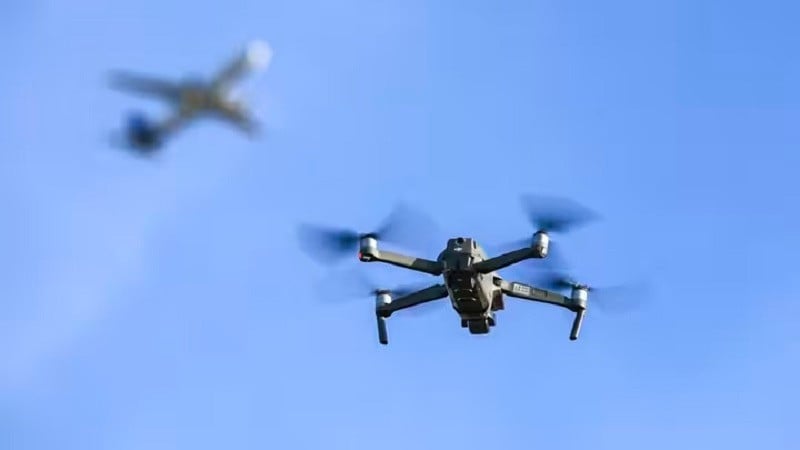
Artificial intelligence (AI) has now become an integral part of almost every aspect of everyday life. The extent to which AI has penetrated lifestyles, workplaces, communication and social interactions is not only accepted but has become so pervasive that it is increasingly overlooked.
AI is increasingly being integrated into military operations, including decision-making, targeting, weapons development, and force deployment options, and raises difficult ethical, legal, and policy issues that will need to be addressed.
Applications of artificial intelligence in defense
AI and robotic automation have become the foundation for superiority and sovereignty in combat. Not only France but also other European countries are forced to participate in strengthening defense capabilities using this technology.
Today, advances in science and technology have led to an unprecedented increase in information and data, from radar signals, radio waves, satellite images, data provided by drones, to logistics data or medical information.
Also from the outstanding development of sensor technology, the huge size of the data warehouse increases more and more with every minute of real time. Processing such a large amount of information, with human capacity, takes a lot of time.
In that context, artificial intelligence becomes an indispensable part. With the power and speed of algorithm processing, AI allows people to speed up operations, increase policy intensity and work efficiency, including in the defense sector.
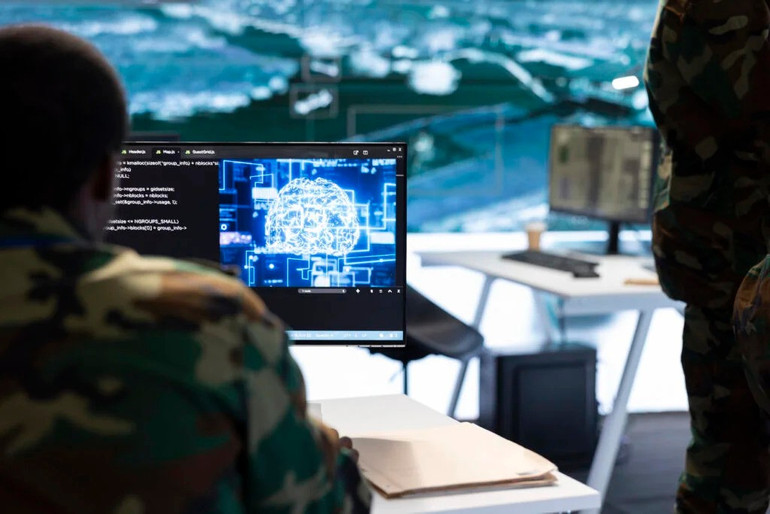
In addition, the focus of European countries' investment in artificial intelligence in the defense sector stems from clearly perceived changes in the security environment, as well as from current urgent and multidimensional threats.
Faced with the increasing threat of terrorism, the escalation of tensions in global conflicts, and the policy of applying high technology in defense that is taking place every day, French President Emmanuel Macron emphasized that: "Europeans must now ensure their own security" and announced an increase in the defense budget.
France's defense spending in 2017 was recorded at 32 billion euros. The target for the next phase is to double that to 64 billion euros by 2030.
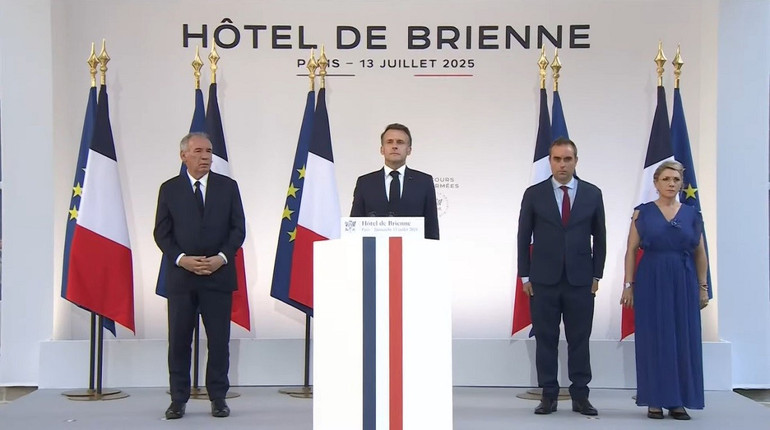
However, on July 13, 2025, President Emmanuel Macron announced a bold and historic decision during a working session just one day before Bastille Day, at the headquarters of the Ministry of the Armed Forces. Accordingly, the defense budget increase period was shortened, including an increase of 3.5 billion euros in 2026 and 6.5 billion euros in 2027.
The aim of this policy is France's effort to strengthen NATO's role as the European pillar and to enable French youth to join the armed forces under more secure conditions.
Another reason that France and many other neighboring countries clearly see: the unpredictable stance from the US forces European countries to "ensure their own security".
Moreover, the world is witnessing a combination of many forms of conflict taking place at the same time, from cyber attacks, disinformation campaigns, to the mass use of drones.
AI has the potential to fundamentally redefine modern warfare. The potential of AI as a technological toolkit to aid the military is often overstated as “revolutionary,” “game-changing,” and “dangerous,” but the difference is almost certainly profound and yet to be measured by any metric.
Center for International Governance Innovation (CIGI)
The ENR portal, a joint project between European news agencies, published on September 26, carried an article related to Germany and Poland. The article quoted German Interior Minister Alexander Dobrindt as saying that the country will increase investment in the field of defense against drones. This move will be implemented through reform of the Aviation Security Law, aimed at preventing and countering attacks in this field.
During the 80th Session of the United Nations General Assembly on September 23, Polish President Karol Nawrocki issued a statement that expanded the definition of modern security threats, not just guns, tanks or missiles. The modern world is facing cyber attacks, disinformation campaigns with technology called “deepfakes” or manipulation of the information space.
Another article published in the French newspaper 20Minutes, on September 8, mentioned the announcement by French Minister of the Army Sébastien Lecornu, that France has made artificial intelligence a top priority, as a revolution on par with nuclear energy.
The French Minister of the Army stressed that mastering military AI will be one of the main signs in the future to determine whether a country is a great power or not. This shows how artificial intelligence can bring great advantages to each country's defense capabilities.
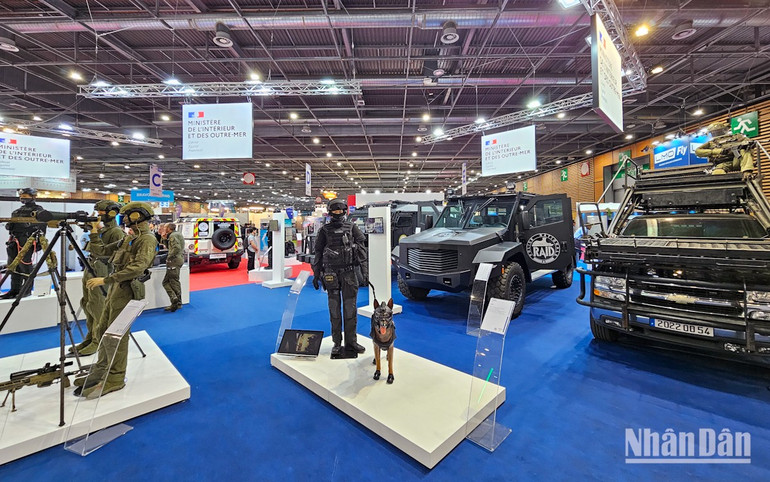
France's new defense strategy and budget commitments
The field of artificial intelligence itself in 2025 has also affirmed its position as an essential strategic lever, due to its operational effectiveness, decision-making ability and speed of response to increasingly complex threats. Therefore, the US, China and Europe are all showing signs of participating more deeply in the competition of combat technology.
Globally, military spending on AI is expected to exceed $30 billion by 2028, with an average annual growth rate of over 13% from 2024.
Globally, venture capital investment in defense-related companies is set to surge to $31 billion by 2024, up 33% from the previous year, according to McKinsey, an American multinational strategy and management consulting firm.
In France alone, in addition to planning to double the budget for AI in the defense sector by 2030, the Government decided to establish a specialized Agency for Defense AI under the French Ministry of the Army (AMIAD) to master these technologies independently.
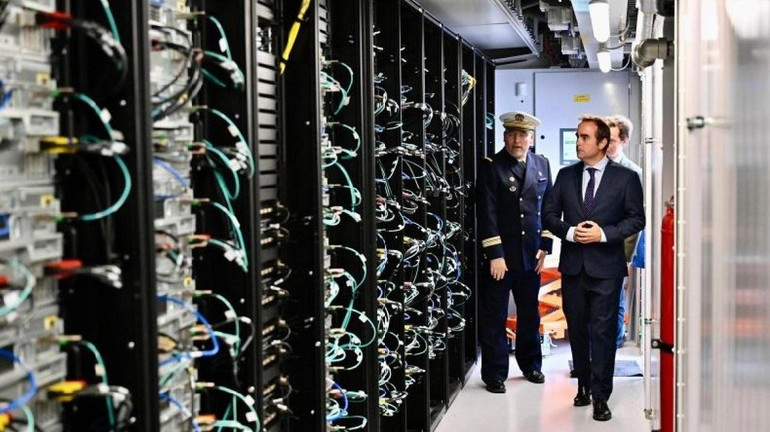
A defense supercomputer project is being jointly developed by the French Ministry of the Army, Hewlett Packard Enterprise (HPE) and Orange, a telecommunications and digital services group.
The ASGARD supercomputer project is equipped with 1,024 latest-generation chips and is completely disconnected from the Internet, managed only by French defense authorities and allows for the training of highly sensitive AI models without relying on any foreign infrastructure, from radar signal processing, audio, intelligence analysis and simulation.
The project is part of an inter-ministerial coordination framework, including important agencies such as the French Directorate General for Defense Equipment (DGA), the Directorate General for External Security (DGSE), the French Commission for Atomic Energy and Alternative Energies (CEA) and the Directorate General for Inter-Services Infrastructure and Information Systems (DIRISI).

The article in the BFMTV online newspaper on July 13 also mentioned the priorities proposed by President Macron: The additional budgets are also aimed at filling strategic gaps, including ammunition, weapons, autonomous aircraft, space capabilities, electronic warfare and quantum technology.
On September 26, 2025, the industrial and defense magazine Enderi published an article titled “Pendragon: AI Robots Will Change the French Army”. Accordingly, the French Army is focusing on a key project called Pendragon, aiming to create the first models of combat robots on land and in the air, controlled by artificial intelligence and expected to launch in 2026.
The October 3 issue of the Conflits geopolitical magazine also said: The French Army is carrying out a program of "innovation at all costs" to increase its ability to counter threats from drones.
Two devices are currently being researched, including Proteus Standard 1 which can shoot down basic drones, and Standard 2 which will allow the destruction of micro-drones which are more mobile and difficult to hit.
Thus, France is building a “sovereign” ecosystem by linking high-level research institutions, traditional defense corporations and cutting-edge AI startups.
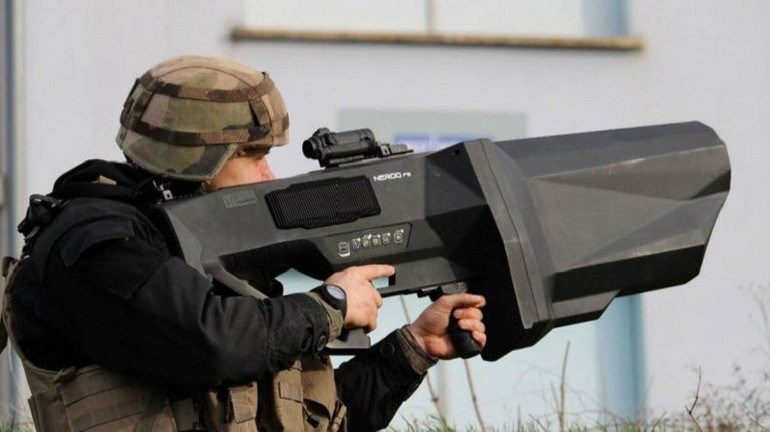
From public-private and academic partnerships to regional coordination efforts
The defense capabilities of countries are no longer only assessed by what technology is applied and how it operates, but are also affirmed through other indicators: ensuring high-quality human resources and autonomous supply chains.
The Technical Center in Bruz, the Research Center affiliated with the Palaiseau Polytechnic School, leading academic laboratories such as LIX, ENSTA and ENS Paris-Saclay, Mistral AI Company - one of Europe's leading technology "unicorns" in the field of generative AI, are also names that the French Government is implementing cooperation with.
Faced with current cross-border traditional and non-traditional threats, Europe is trying to overcome its long-standing divisions to build a strong common defense in technology.

The French Government's report on Budget Expenditure for the Defense Industrial and Technological Base published on March 4, 2025, mentioned the ReArm Europe plan launched by France, Germany and the UK, aiming to mobilize nearly 800 billion euros to strengthen the defense capabilities of the European Union (EU) and reduce dependence on NATO and the US in the next 5 to 10 years.
The European Defence Fund (EDF) was also created with a budget of 7.953 billion euros for the period 2021-2027, to finance research and development of cooperative military capabilities.
In February of this year, the European Commission's information portal also published a press release about the EU announcing the InvestAI initiative, mobilizing 200 billion euros for artificial intelligence applications in autonomous defense and cybersecurity.
In addition, cross-border defense industry cooperation programs are being developed vigorously. Helsing, a defense AI startup with “triple citizenship” from Germany, France and the UK, is a typical example. Valued at 12 billion euros, Helsing cooperates with French company Loft Orbital to monitor borders using satellites and works with Swedish company Saab to integrate AI into the Gripen fighter jet.
Aimed at enhancing strategic coordination and interoperability, AsterX 2025 is known as the fifth French military space exercise, with the participation of 24 foreign military personnel from 12 allied countries including Germany, Australia, Canada, South Korea, Spain, the United States, India, Italy, Japan, Norway, the United Kingdom and Poland.
Institutional partners include the French National Centre for Space Research (CNES), the French Space Command (COE) and the French National Office for Aerospace Research and Experimentation (ONERA), as well as industrial, defense, telecommunications and satellite partners such as AGENIUM, Safran Data System, Arianegroup, Crisotech, Exotrail, DeliaStrat, Look Up and MBDA, which remain fully committed to participating in similar exercises.
For its part, Germany is also strengthening its anti-drone capabilities by reforming aviation security laws. Helsing has developed the HX-2 drone, which uses artificial intelligence to guide explosives to targets, minimizing electronic interference.
Also according to the article on the ENR portal mentioned above, the Eagle.One autonomous aircraft developed by the Czech Republic is a hunting device capable of using artificial intelligence to safely intercept illegal drones in airspace without destroying them.
Thanks to its built-in artificial intelligence, Eagle.One can react to unpredictable target movements and even capture multiple drones in a single mission.
Many other European countries are also gradually planning and implementing steps within the framework of the “Security Action for Europe” (SAFE) initiative. This is a financial instrument of the European Union established to provide loans of up to 150 billion euros. This funding is part of the plan to strengthen defense, enhance cyber defense capabilities, anti-missile defense and autonomous aircraft systems.
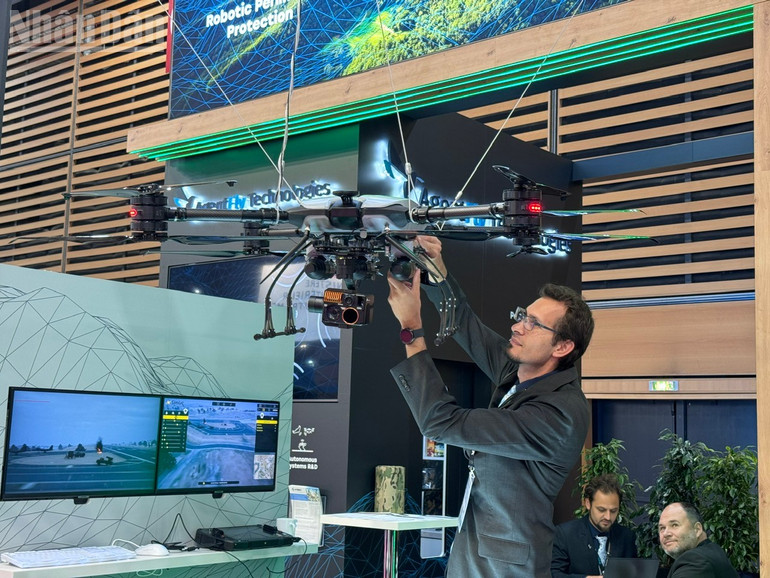
The ethics behind new technology-based military equipment
In an article published on the portal of the French Institute of International Relations (IFRI) on March 1, 2025, Ms. Laure de Roucy-Rochegonde, an expert on autonomous weapons and Director of the Center for Geopolitics of Technology under IFRI, expressed concern about a side issue.
That is, whether installing a drone with a mechanism to “automatically identify and attack targets depending on the situation” is within the control of humans in combat or not. Not to mention the case with an AI system that supports assessment and action suggestions, the commander may tend to trust that result immediately, instead of taking enough time to evaluate or search for other information to verify.
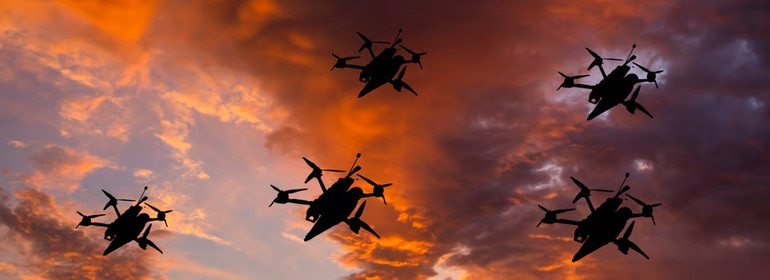
Ultimately, the new policy of increasing AI investment in the defense sector is not an option, but a vital necessity for Europe to maintain its sovereignty and its ability to defend, as well as attack, in an increasingly unpredictable world.
European countries are looking for solutions to protect their own security. France is also positioning itself as a leader in the field of defense artificial intelligence in the region.
However, the challenge remains enormous. Europe needs to ensure its control of the entire technology supply chain, especially since GPU chips are still dominated by the US. The success of Europe’s defense AI strategy will determine which country becomes an autonomous technology powerhouse, or whether the region will simply be a consumer market for technologies from other countries.
European countries still have to find a balance between entering the "game" of applying high technology to the military, maintaining ethical control of military equipment as well as users and, above all, ensuring compliance with the principles of international law.
Source: https://nhandan.vn/chau-au-ung-dung-tri-tue-nhan-tao-nham-nang-cao-nang-luc-quoc-phong-post922264.html




![[Photo] Unique architecture of the deepest metro station in France](https://vphoto.vietnam.vn/thumb/1200x675/vietnam/resource/IMAGE/2025/11/14/1763107592365_ga-sau-nhat-nuoc-phap-duy-1-6403-jpg.webp)
![[Photo] Unique art of painting Tuong masks](https://vphoto.vietnam.vn/thumb/1200x675/vietnam/resource/IMAGE/2025/11/14/1763094089301_ndo_br_1-jpg.webp)


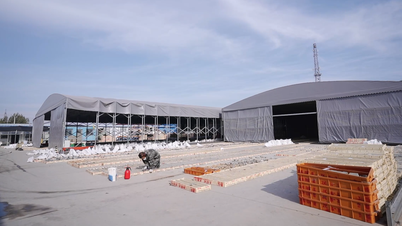




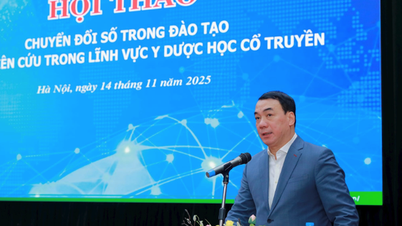

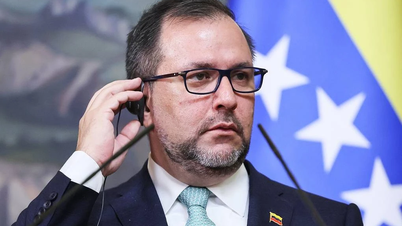












![[Photo] Special class in Tra Linh](https://vphoto.vietnam.vn/thumb/1200x675/vietnam/resource/IMAGE/2025/11/14/1763078485441_ndo_br_lop-hoc-7-jpg.webp)
















































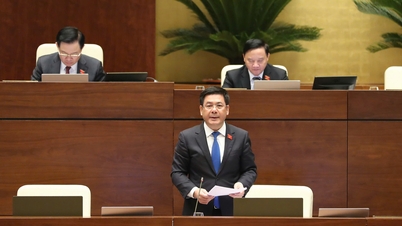



























Comment (0)